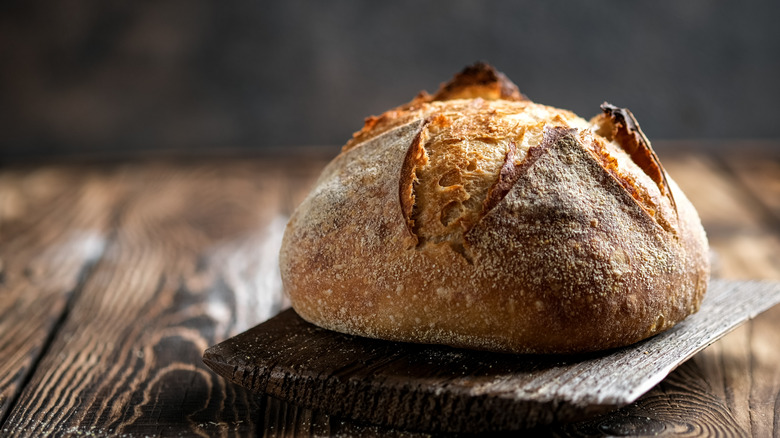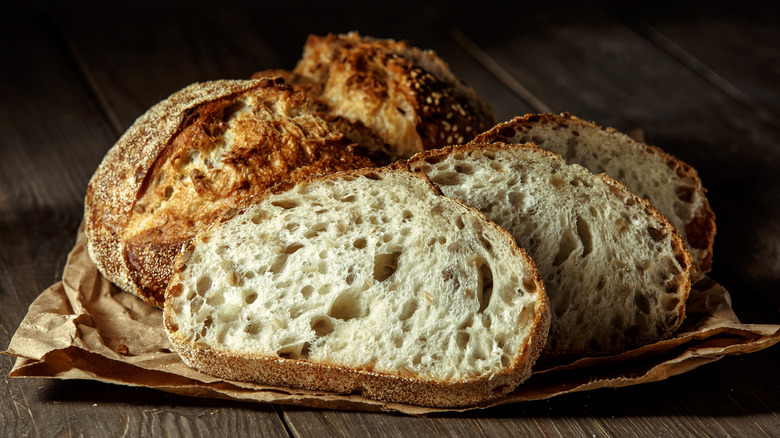Why You Should Avoid Oil If You Want A Thick Homemade Bread Crust
Breads can be made in an astonishing range of varieties, and the techniques and ingredients you use are typically dictated by the style of bread you're making. For example, if you want a classic sandwich bread – one that's tender and evenly shaped — your recipe will often call for milk and butter, along with a generous amount of time set aside for kneading. This creates the soft, even crumb structure that sandwich bread displays (per Veronika's Kitchen).
If you have patience but little prep time, you might opt for a no-knead bread, like our delicious rosemary loaf, that relies on time rather than elbow grease to get the gluten in the flour working. And when you look at the recipe, you'll note that it's quite simple, calling for nothing more than water, flour, yeast, salt, and fragrant rosemary. When you compare recipes for bread, you'll notice that some include a source of fat, like oil or butter, while others do not. Why the difference?
Busby's Bakery shares that adding oil to bread dough has many benefits. It can help your loaf to retain moisture, makes the texture denser, and enhances flavor. However, if you're looking for a sturdy, substantial crust, adding oil to your dough isn't your best bet. Here's why.
Adding oil to your dough makes it difficult for a thick crust to form and softens the bread
According to King Arthur Baking, the best recipes for seriously crusty bread are often the simplest, omitting rich ingredients like eggs, butter, or sour cream, which would soften the bread's thick structured crust. Busby's Bakery notes that adding oil to bread dough keeps water from evaporating as quickly in the oven, meaning that your loaf of bread will hold on to more moisture and stay tender.
That soft consistency may be ideal for the crust of sandwich bread, but it's not what you'd expect from a baguette. Adding oil will decrease any chance of a thick crust form forming. Depending on the kind of bread you're baking, a delicate, thin crust may be perfectly fine, but for that satisfying thick outer layer, simple no-fat ingredients work best. Hence why it's no surprise that the rustic rosemary bread sans oil bakes up with a beautifully sturdy crust.
If you want to take it further and ensure an even crunchy golden crust on top and bottom, you can also use a baking stone. King Arthur Baking shares that this tool gives your dough a quicker rise in the oven but also helps make the bottom of the loaf delightfully crisp. So for the sake of your bread's crust and the hard work that goes into making it, save yourself the hassle and be sure to skip out on the oil.

